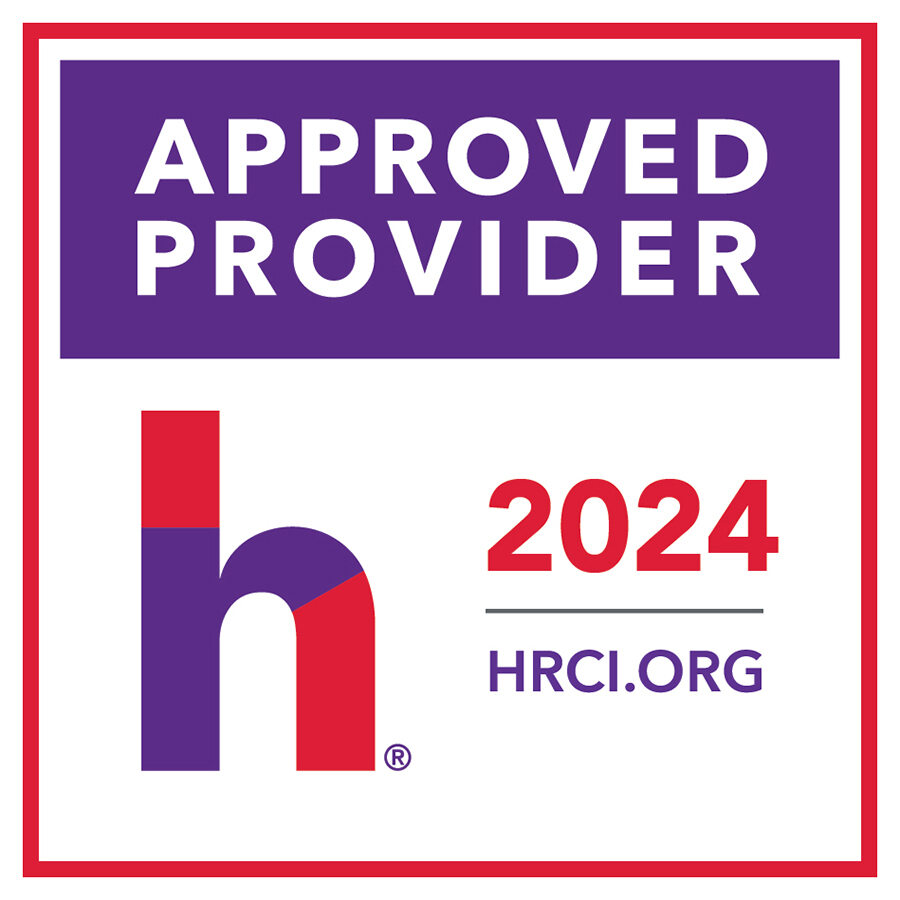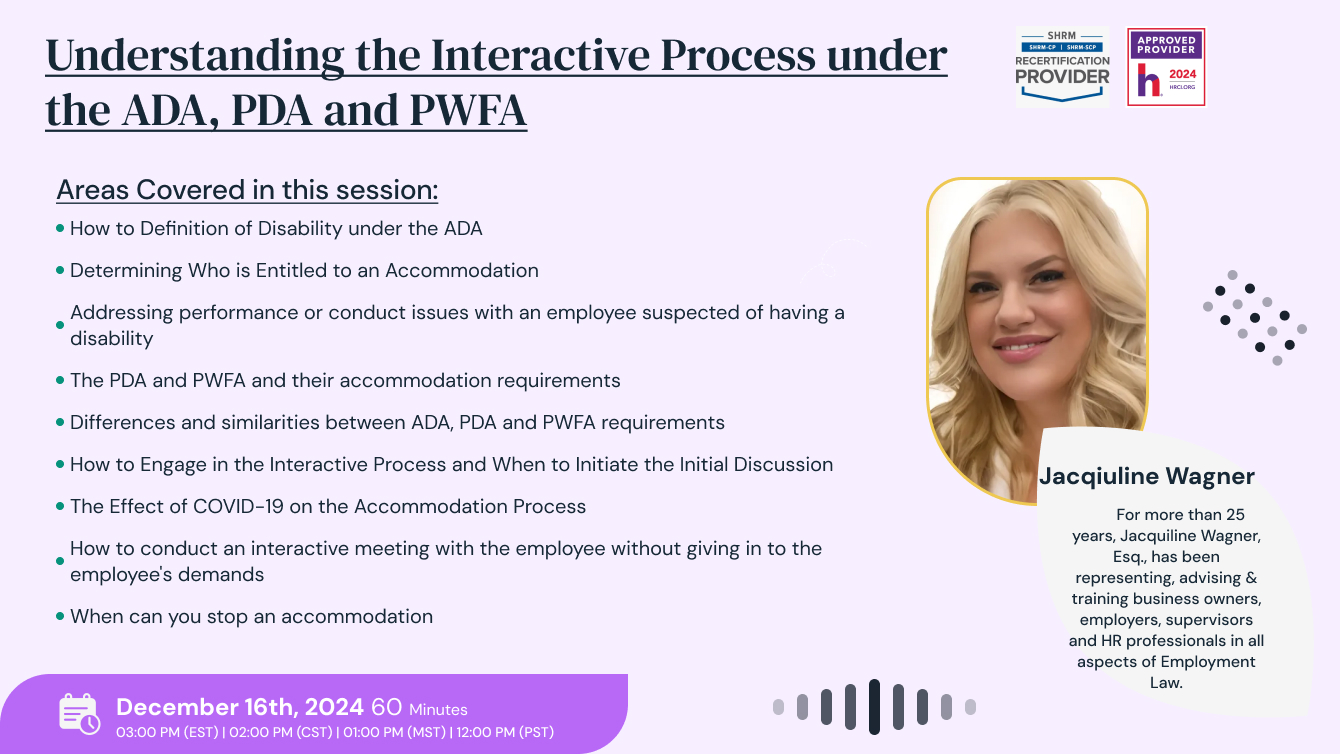Overview:
More than ever, now, and as a result of the COVID-19 pandemic it is vital that employers understand their obligations under the ADA to provide reasonable accommodations to any employee that might have a disability. A disability can be a physical condition or a mental impairment.
But it’s not just the ADA. The Pregnancy Discrimination Act (PDA) and the Pregnant Workers’ Fairness Act (PWFA) also require reasonable accommodations.
The EEOC says that whenever an employer receives a request for a reasonable accommodation it has to “engage in the interactive process”. What is the interactive process, though? Can an employer always know that an employee has requested an accommodation? Might an employer have to engage in the interactive process when the employee has not explicitly requested an accommodation? The ADA, the PDA and now the PWFA and the interactive process are often poorly understood fraught with pitfalls. In this webinar will explore the interactive process and de-mystify these and other key concepts.
Areas covered in This Training:
· How to Definition of Disability under the ADA
· Determining Who is Entitled to an Accommodation
· Addressing performance or conduct issues with an employee suspected of having a disability;
· The PDA and PWFA and their accommodation requirements;
· Differences and similarities between ADA, PDA and PWFA requirements
· What to do when you want to discipline and employee who mentions that the work problems are related to a disability or pregnancy.
· How to Engage in the Interactive Process and When to Initiate the Initial Discussion
· The Effect of COVID-19 on the Accommodation Process
· How to conduct an interactive meeting with the employee without giving in to the employee's demands
· When can you stop an accommodation
Why Attend This Training:
Most employers know that the ADA/ADAAA prohibits discrimination against qualified individuals with disabilities. Many employers are aware that the ADA requires them to provide reasonable accommodations to qualified individuals with disabilities.
Many employers understand that pregnant workers are entitled to some accommodations but don’t necessarily know the extent of their obligations.
What does all this really mean? Who is a disabled individual? What is a reasonable accommodation for a disability? When is a pregnant worker entitled to an accommodation – and what kind of accommodation? How does an employer go about providing accommodations? What is the interactive process and how does it relate to these questions. We will address those and many other questions in this webinar.
Suggested Attendees:
· CEO’s
· CFO’s
· In-House Counsel
· Business Owners
· HR managers
· HR Directors
· Benefits and Leave Administrators
· Department heads and supervisors
· Owners and managers of small businesses
· HR professionals
· HR Administrators
· Compliance Professionals
· Senior Managers

Jacquiline M. Wagner, Esq.
For more than twenty-five years, Jacquiline Wagner, Esq., the proud President of Wagner HR, has been representing, advising and training business owners, employers, supervisors and Human Resources professionals in all aspects of Employment Law. Stemming from her seasoned experience, Jacquiline has designed an effective five-point system tailored to cultivate the emotional intelligence of leadership, maximize the full potential of employees and effectively reduce the risk of Employment litigation.
.png)
SHRM -
StandEagle is recognized by SHRM to offer Professional Development Credits (PDCs) for the SHRM-CPSM or SHRM-SCPSM. This program is valid for 1.0 PDCs for the SHRM-CPSM or SHRM-SCPSM. For more information about certification or recertification, please visit - portal.shrm.org.

HRCI -
This webinar has been approved for 1.0 HR (General) re-certification credit hours toward California, GPHR, HRBP, HRMP, PHR, and SPHR recertification through the HR Certification Institute.
The use of this seal is not an endorsement by the HR Certification Institute of the quality of the activity. It means that this activity has met the HR Certification Institute’s criteria to be pre-approved for re-certification credit.

ACCREDITATIONS


